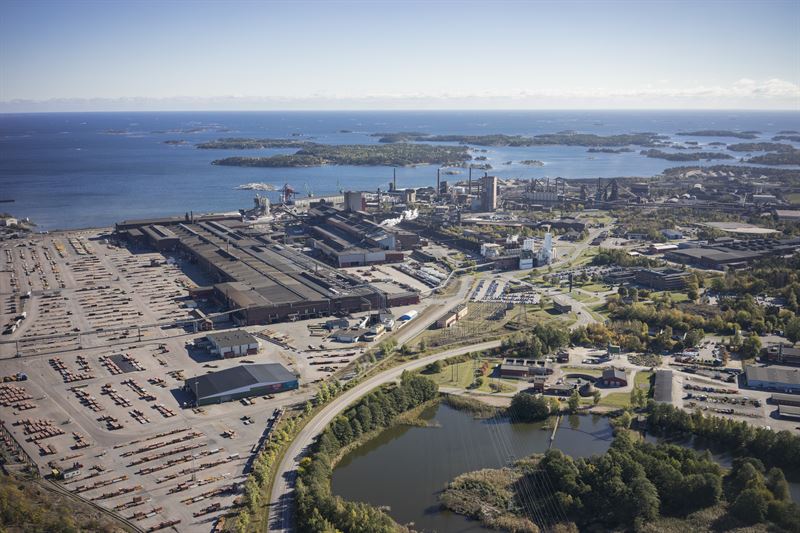SSAB invests in green transformation of production in Oxelösund

The investment decision is an historic milestone for the green transformation toward fossil-free steelmaking. Oxelösund is the first big step in SSAB’s plan to convert the entire Nordic production system in around 2030.
“This investment decision is a very important step on our journey to fossil-free steel production and becoming a fossil-free company. It will have a positive impact both locally and globally and help our customers to reduce their carbon footprint. At the same time we will keep local jobs and improve the surrounding environment,” says Martin Lindqvist, President and CEO of SSAB.
“The investment in Oxelösund will increase our flexibility and earnings and the conversion of the Oxelösund mill will enable us to reduce Sweden’s CO2 emissions by 3%. However, the transformation requires final approval for the necessary power line to Oxelösund,” Martin Lindqvist continues.
In order to continue to keep up a high pace and lead to fossil-free transformation, SSAB’s Board has taken the decision to invest SEK 6.2 billion in a new electric arc furnace and raw material handling in Oxelösund. In addition, there will be investments in the future power line and restoration costs. The investment in Oxelösund will eliminate the need to invest in existing systems with blast furnaces and coking plants, and will mean increased capacity for premium products, an improved cost position and fossil-free production.
In 2016, SSAB, together with LKAB and Vattenfall, launched the HYBRIT initiative to develop new fossil-free steelmaking technology. A pilot plant for hydrogen-reduced sponge iron opened in Luleå in August 2020. SSAB has already made small batches of fossil-free steel from the sponge iron produced at the plant and delivered them to strategic customers, thereby taking a leading position in the green transition in the steel industry.
March 2023 saw another important step when SSAB introduced SSAB Zero, a fossil carbon emission-free steel based on recycled steel and made using fossil-free energy. When the Oxelösund mill is converted, it will be able to use a flexible mix of fossil-free sponge iron and scrap as the raw material to produce steel without carbon dioxide emissions.
For further information, please contact:
Gunilla Hjalmarson, Head of External Communication, [email protected] tel. +46 76 117 9185
Hanna Hoikkala, press officer, [email protected], tel. +46 73 655 1117
Kategoria ja tunnisteet
